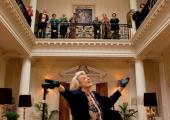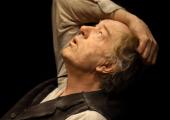Quartet

Dustin Hoffman's delightful directorial debut centres on opera singers resisting retirement
Assured, warm and comfy, Dustin Hoffman’s directorial debut Quartet is a tasteful farce of froths and strops. Hoffman’s always wanted to direct and it’s not like he hasn’t tried.




